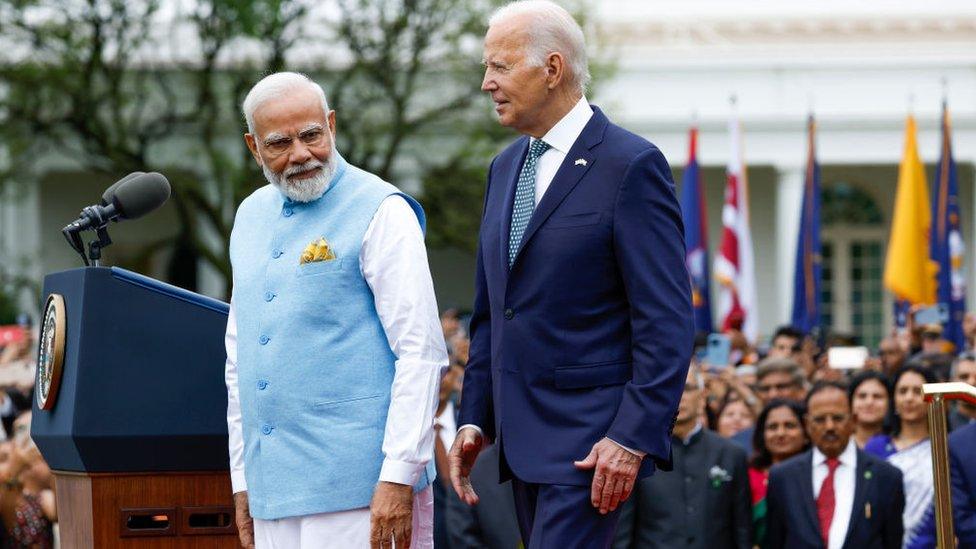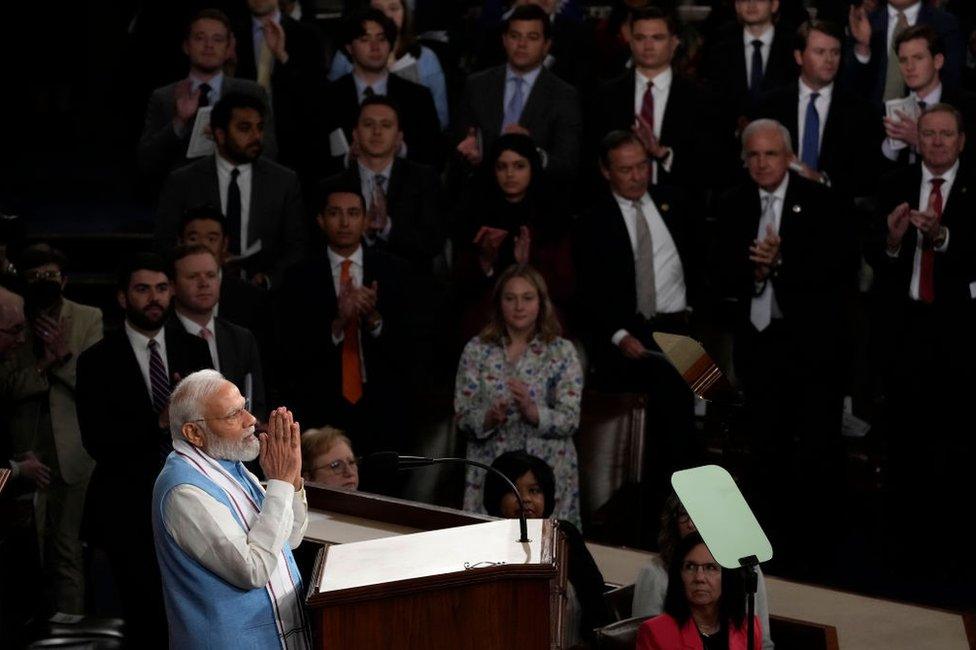Joe Biden and Narendra Modi hail 'defining' US-India partnership
- Published

US President Joe Biden hailed US-India ties, while rolling out the pomp and pageantry for visiting Prime Minister Narendra Modi on Thursday.
This included marching bands, a lavish vegetarian dinner and a 21-gun salute on the South Lawn of the White House.
Mr Modi, who is on a state visit, also addressed the US Congress, where he received a standing ovation.
The US, which denied a visa to Mr Modi over human rights concerns before he was PM, now sees him as a crucial ally.
Washington has long viewed India as a counterbalance to China's growing influence in the Indo-Pacific, although Delhi has never been fully comfortable with owning the tag.
When addressing Congress, Mr Modi did not mention China by name, although he mentioned "dark clouds of coercion and confrontation casting their shadow over the Indo-Pacific".
Mr Modi also did not mention Russia or who started the war, saying instead, "With the Ukraine conflict, war has returned to Europe".
India has so far not directly criticised Russia, which analysts say is largely due to its huge dependency on Russian defence and oil imports and its "time-tested ties" with Moscow.
This has strained relations between Washington and Delhi but Mr Biden chose to focus on the positive, saying ties between the two countries were stronger than ever. He went as far as to call it "one of the defining relationships of the 21st Century".
Mr Modi agreed, telling the US Congress that this was a coming together of the world's two great democracies. He also said that the friendship between the two countries would be "instrumental in enhancing the strength of the whole world".
He added that a "new chapter" had been added to the two countries' comprehensive and global-strategic partnership.

Mr Modi addressed the US Congress on Thursday
However, not everyone was celebrating.
The Indian prime minister has come under increasing criticism for cracking down on dissent. His Hindu nationalist government too has been accused of not doing enough to protect minorities from violence and discrimination. But even as Mr Modi's visit to the US has seen protests, it has also been welcomed by a large and influential diaspora that includes many Silicon Valley CEOs.
A number of liberal Democrats, however, boycotted his speech at Congress. Among them was representative Alexandria Ocasio-Cortez, who said on Twitter that state visits - the highest diplomatic protocol in the US - should not be offered to individuals with "deeply troubling human rights records".
Apart from the pomp and parades, there was also progress on the trade front.
The two countries agreed to terminate six outstanding disputes at the World Trade Organization, and announced deals with General Electric and Micron.
Mr Modi also took the rare step of answering questions from reporters - something he has almost never done since becoming India's prime minister in 2014.
When asked about human rights concerns in India, he said "democracy runs in our veins" and there is "absolutely no space for discrimination" in India, even as protesters gathered outside the White House to oppose his visit.